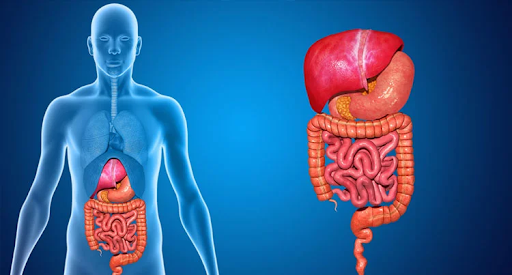Your digestive health is crucial to your overall well-being, but many people but many people often overlook symptoms that may indicate underlying issues with the gastrointestinal system. If you’re experiencing persistent symptoms like abdominal pain, heartburn, or changes in bowel habits, it may be time to see a gastroenterologist. Conditions like GERD, liver disease, and inflammatory bowel disease can cause severe discomfort and lead to complications if left untreated. This guide outlines the signs and symptoms that indicate when it’s essential to seek help from the best gastroenterologist in Mumbai.
Persistent Heartburn or GERD
Heartburn that occurs occasionally is common and can often be managed with over-the-counter medications. However, if you experience frequent heartburn or it persists despite medication, this could be a sign of gastroesophageal reflux disease (GERD). GERD can damage the oesophagus if left untreated, leading to more serious complications. Some of the best gastroenterologist in Mumbai can help you manage this condition and recommend lifestyle changes, medications, or, in severe cases, surgery to relieve symptoms.
Chronic Abdominal Pain
Stomach aches and cramps can be caused by numerous factors such as gas, indigestion, or overeating. However, if abdominal pain is constant or intense, it could signal something more severe, like ulcers, gallstones, or even pancreatitis. Abdominal pain that lasts more than a few days or is accompanied by other symptoms, such as nausea or fever, warrants a consultation with a gastroenterologist. They can conduct a thorough examination and provide the right treatment to address the underlying cause.
Unexplained Weight Loss or Nutritional Deficiencies
If you’re losing weight without changing your diet or exercise routine, this could indicate an underlying digestive issue. Nutritional deficiencies, like anaemia or vitamin deficiencies, can also signal a problem with the digestive tract. Malabsorption of nutrients is often associated with conditions such as celiac disease, Crohn’s disease, or chronic liver disease. A gastroenterologist will perform the necessary tests to identify and treat the condition, ensuring your body gets the nutrients it needs.
Jaundice and Liver-Related Symptoms
Yellowing of the skin or eyes, known as jaundice, is often a symptom of liver or gallbladder issues, including hepatitis or cirrhosis. Jaundice should not be ignored, as it often indicates a serious condition affecting the liver’s ability to process waste. If you notice these symptoms, along with dark urine or pale stools, it’s crucial to seek immediate medical attention from a gastroenterologist. Liver conditions, if caught early, can often be managed with lifestyle changes and medications, but if left untreated, they can lead to liver failure.
Difficulty Swallowing
Difficulty in swallowing, known as dysphagia, is a common symptom of esophageal problems. This may happen due to acid reflux, esophageal strictures, or even cancer. If you experience pain or a feeling of food getting stuck in your throat, it’s essential to see a specialist. A gastroenterologist will likely recommend diagnostic procedures like an endoscopy to identify the issue and propose treatments that range from medications to surgery, depending on the severity of the condition.
Chronic Diarrhoea or Constipation
Everyone experiences diarrhoea or constipation at some point, but when these issues become chronic, it might be a sign of a more significant problem. Conditions like irritable bowel syndrome (IBS), Crohn’s disease, or ulcerative colitis could be behind these persistent issues. Chronic diarrhoea can lead to dehydration and malnutrition, while prolonged constipation can result in discomfort and even bowel obstructions. Seeing a gastroenterologist can help manage these symptoms and improve your quality of life.
Blood in Stool
Blood in the stool is always a concerning sign, whether it’s bright red or darker in color. This could indicate haemorrhoids, but it might also point to more severe conditions like colorectal cancer or gastrointestinal bleeding. Regardless of the cause, it’s essential to have this symptom evaluated by a gastroenterologist. Through diagnostic procedures such as a colonoscopy, a specialist can determine the cause and offer appropriate treatments, which could range from medications to surgery.
Unexplained Bloating and Gas
While bloating and gas are common after eating certain foods, constant and unexplained bloating might indicate an issue such as small intestinal bacterial overgrowth (SIBO), irritable bowel syndrome (IBS), or even ovarian cancer. If dietary changes do not alleviate the bloating and discomfort, a gastroenterologist can help determine if an underlying condition needs treatment.
Managing Chronic Conditions Like Crohn’s Disease or Ulcerative Colitis
Inflammatory bowel diseases (IBD) like Crohn’s disease or ulcerative colitis are chronic conditions that require ongoing management. Symptoms often include severe abdominal pain, diarrhoea, and weight loss. While there is no cure for these conditions, a gastroenterologist can help manage flare-ups and maintain remission through medications, lifestyle changes, and sometimes surgery.
Know more about : Gastrointestinal Diseases: What is It & Symptoms of Gastrointestinal Disorders?
Conclusion
Being proactive about your digestive health is crucial. Regular visits to a gastroenterologist, especially if you’re experiencing persistent or unexplained symptoms, can prevent more severe complications. Whether dealing with something as familiar as acid reflux or more critical conditions like Crohn’s disease, you can find a best gastroenterologist in Mumbai in leading hospitals like the Nanavati Max Super Speciality Hospital, which can provide the care you need. Early intervention is often the key to successful treatment and quality of life. Don’t hesitate to seek expert help when you notice symptoms that could signal something more serious.




